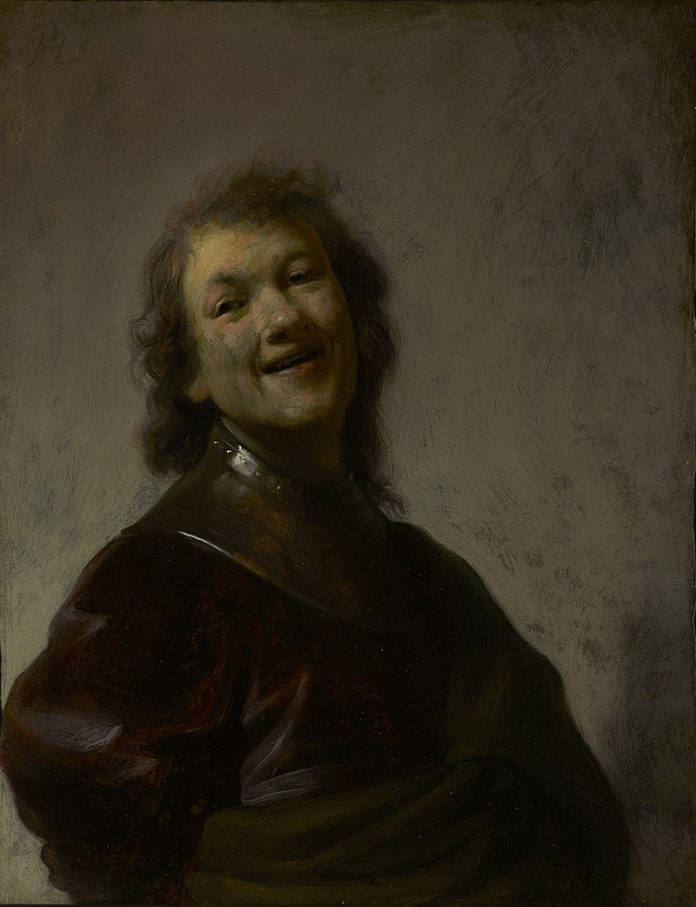Because jokes are not told in the Bible, some people wrongly suppose that religion must be a humourless business. So far is this from true that we find some of the finest nuggets of humour among religious savants. Archbishop Fulton Sheen, for example, offered many. Here’s a good one: “Hearing nuns’ confessions is like being stoned to death with popcorn.”
Then there’s the remark found inscribed on a colonial tombstone in Massachusetts:
Here lies that atheist so-and-so.
All dressed up and nowhere to go.
Humor, after all, must find its roots in deep-seated playfulness, or why would we laugh at anything except in a spirit of meanness? In his book Orthodoxy G.K. Chesterton, no slouch in the humor department, suggested a trait of Jesus that rarely receives treatment due.
“There was something that He hid from all men when He went up a mountain to pray. There was something that He covered constantly by abrupt silence or impetuous isolation. There was some one thing that was too great for God to show us when He walked upon our earth; and I have sometimes fancied that it was His mirth.”
Indeed, since He made us in his image and likeness, surely Jesus laughed. We have all deserved his laughter as we puff ourselves up with our our importance, only to fall like a fool on our backside by slipping on the proverbial banana .
Here is one of Abraham Lincoln’s favorite jokes:
“A minister and a lawyer were riding on a train together. ‘Sir,’ the minister asked the lawyer, ‘Do you ever make mistakes while in court?’
‘Very rarely,’ the lawyer said proudly, ‘but on occasion I must admit that I do.’
‘And what do you do when you make a mistake?’ the minister asked.
‘If they are large mistakes, I mend them,’ the lawyer said. ‘But if they are small mistakes, I let them go. Tell me Reverend, don’t you ever make mistakes while preaching?’
‘Of course,’ said the minister. ‘And I dispose of them in the same way that you do. Not long ago I meant to tell the congregation that the devil was the father of liars, but I made a mistake and said the father of lawyers. The mistake was so small that I let it go.’”
Holy humor comes from the innate joy of a holy religion. A dark and joyless life, such as that lived by the comic Lenny Bruce (1925-1966) will produce a vile and sneering type of humour full of taunts, sarcasms, and vulgarities. The people who laughed at Lenny Bruce shared his anger and contempt for the targets of his humour. Why are we not surprised to learn that the foul-mouthed comic, whose autobiography is titled How to Talk Dirty and Influence People, should be dead at the age of forty from an overdose of drugs? Bruce inspired a cult of like-minded comics whose anger runs like an electric shock through every joke.
On the other hand, holy humour cannot be so angry or bitter because the humorist sees behind all subjects of mirth the frail innocence of our human nature. There is humour even in the serious silence of a monastery, as the following story proves:
Lost on a rainy Friday night, a priest stumbled into a monastery and requested shelter there. Fortunately, he was just in time for dinner and was treated to the best fish and chips he’d ever had. After dinner, he went into the kitchen to thank the chefs. Two of the kitchen brothers greeted him.
“Hello, I’m Brother Michael, and this is Brother Francis.”
“I’m very pleased to meet you,” the priest said. “I just wanted to thank you for a wonderful dinner. The fish and chips were the best I’ve ever tasted. Out of curiosity, who cooked what?”
Brother Michael replied, “Well, I’m the fish friar.”
The priest turned to the other brother and said, “Then you must be….”
“Yes, I’m afraid I’m the chip monk.”
Bon appetit!










